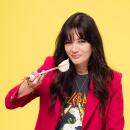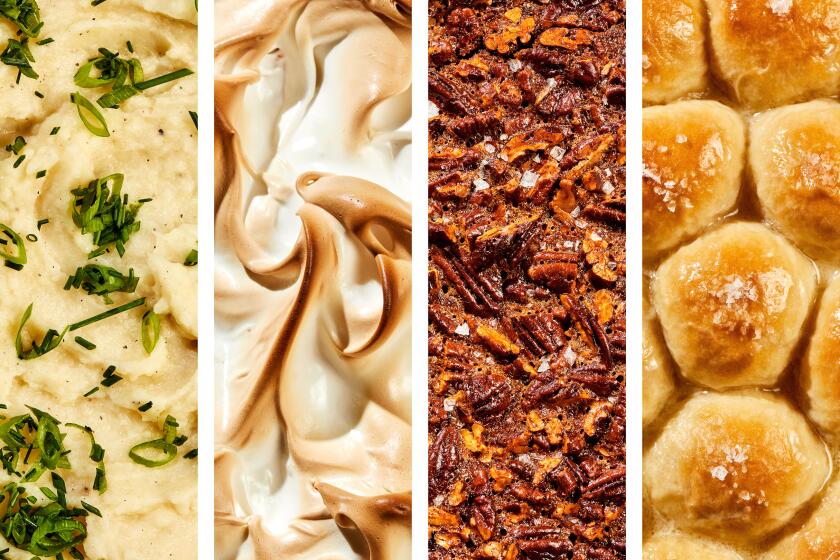There’s no such thing as a wrong matzo ball, but this is the right one

Big, small, soft, hard, there’s no such thing as a wrong matzo ball. According to Shelli Azoff, co-owner of the 75-year-old Nate ‘n Al’s deli in Beverly Hills, there’s a matzo ball for everyone.
“Some people like them small and dense, hard,” she said, seated in a booth at the restaurant with a bowl of hot matzo ball soup before her. “This style is much more on the fluffy but not fall-apart style,” she said.
The dumplings have become synonymous with Jewish deli food and culture, served bobbing around in hot bowls of chicken soup meant to cure whatever ails you. I grew up eating my Jewish grandmother’s medium-sized, dense matzo balls at Passover dinner.
From gyoza to ravioli to mandu, Jenn Harris explores different dumplings and the stories behind them.
The matzo balls at Nate ‘n Al’s are the size of softballs. Chef Jose Estrada makes hundreds of them a day, and mixes the dough by hand. And while most people order them in soup, some diners request the dumplings on their own.
“Two matzo balls, or three matzo balls, four matzo balls … no soup,” Estrada said. “No vegetables.”
On this week’s episode of “The Bucket List: Dumplings,” we get a peek inside the kitchen at Nate ‘n Al’s. A real Nate (Nate Rimer) and Al (Al Mendelson) opened the delicatessen in 1945. It’s a place that hasn’t changed much over the years, like a time capsule preserving the long history and tradition of Jewish deli food. The menu includes all the familiar favorites, including brisket, corned beef and platters of smoked fish. And the matzo ball soup has always been essential to the Nate ‘n Al’s experience.
Over the past four years, longtime fans worried about the future of the deli after multiple rumors of closures, moves, reopenings and new owners. Azoff, who bought the deli with her husband, Irving, in 2019, now runs the restaurant with the h.wood group, the restaurant company that also owns the Nice Guy and Delilah.
In this episode of “The Bucket List: Dumplings,” we explore what we like to call Frankenstein dumplings with unexpected fillings like grilled cheese or tom yum soup.
“When my husband and I bought the restaurant, one of the most important things to us was to keep everything exactly the same as it was from Day One,” she said. “It is such a tradition in Jewish culture, but I think it far expands just to where people come in just for the matzo ball soup.”
Later in the episode, we head north to sample more deli dumplings with roots all over Eastern Europe. At the end of the 19th century, more than 5 million Jewish people lived in the Russian Empire, which at the time, included Poland and Ukraine. The diaspora of the Jewish people meant an overlap of cultures and cuisines, including dumplings. If you’re lucky, you might find pelmeni, varenyky or kreplach on the menu at your local Jewish deli.
At Grossman’s Noshery in Santa Rosa, you’ll find excellent versions of all three. Co-owner Mark Stark invited us into his home kitchen to show us how to make the dumplings. His pelmeni, varenyky and kreplach represent a cultural medley of Eastern European and Ashkenazi traditions and foods, with various American and unexpected Asian influences as well.
On this week’s episode of ‘The Bucket List: Dumplings,’ we learn about Japanese gyoza, what makes them so delicious, and who is making them in L.A.
Then we headed to the restaurant for a lunch filled with dumplings and vodka. Turns out, ice-cold vodka is the ideal pairing for a bowl of dumplings.
Stay tuned for more episodes, and don’t forget to subscribe to our YouTube channel to never miss a new video.
More to Read
Eat your way across L.A.
Get our weekly Tasting Notes newsletter for reviews, news and more.
You may occasionally receive promotional content from the Los Angeles Times.

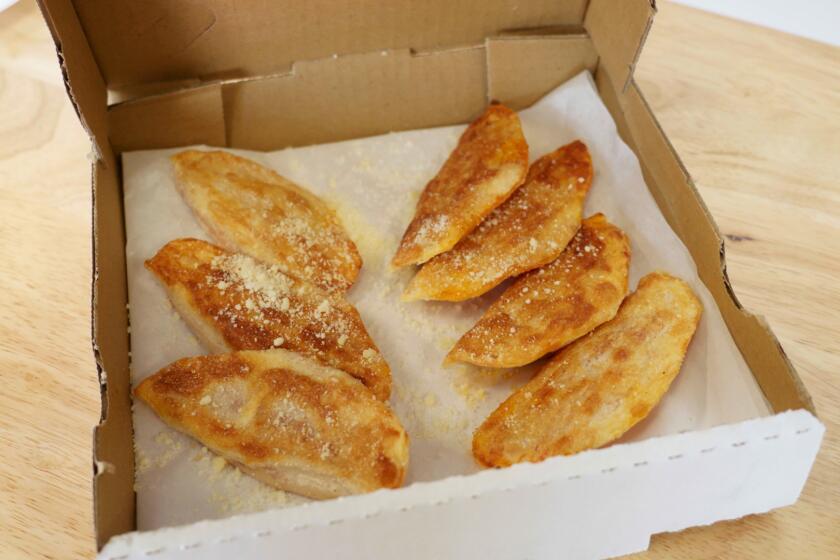
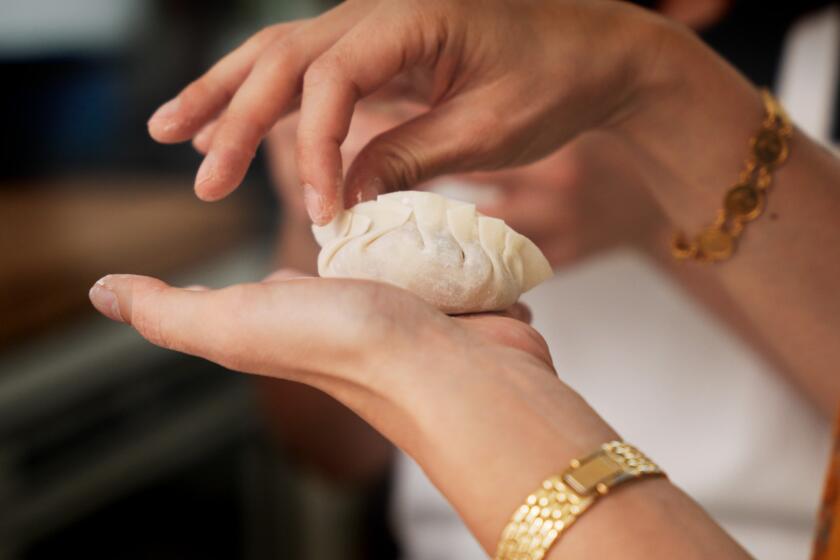

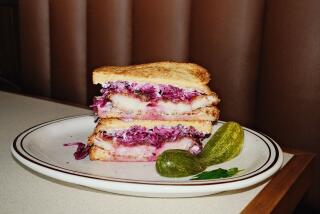
![LOS ANGELES, CA - JUNE 17: [Cody Ma and Misha Sesar share a few dishes from their Persian Restaurant Azizam] on Monday, June 17, 2024 in Los Angeles, CA. (Ethan Benavidez / For The Times)](https://ca-times.brightspotcdn.com/dims4/default/7ffc7f6/2147483647/strip/true/crop/5110x3417+306+0/resize/320x214!/quality/75/?url=https%3A%2F%2Fcalifornia-times-brightspot.s3.amazonaws.com%2F79%2Fdc%2F4d29255545f5b9813315901692bc%2F1459972-fo-azizam-review20-eba.JPG)
